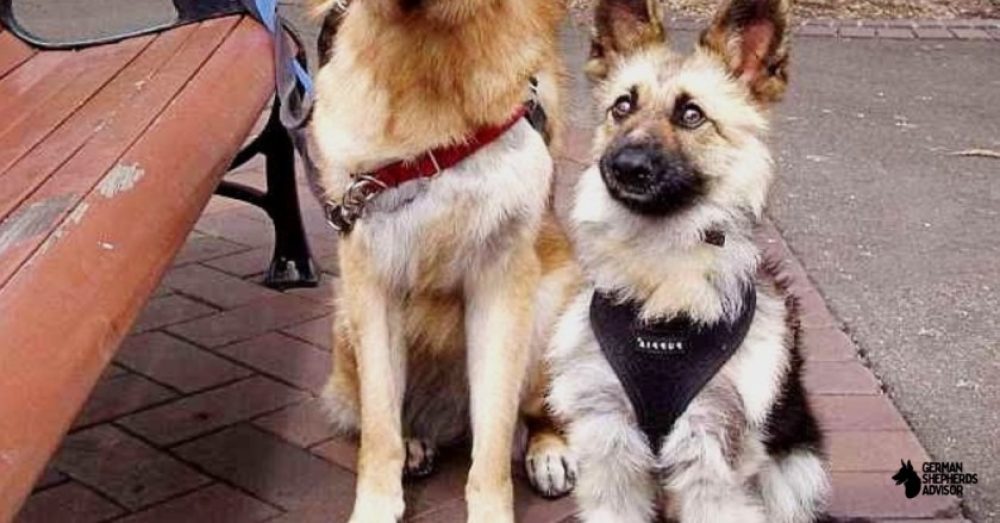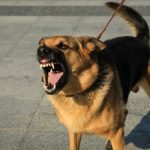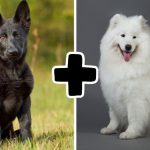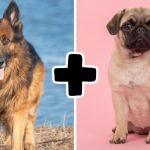The puppies typically sold as mini German Shepherds are not dwarf but mixed breeds. Dwarf German Shepherds are a new and rare breed of German Shepherd dogs that are gaining popularity. They are small but make up for it with their big personalities. Dwarf German Shepherds are loyal, courageous, and intelligent dogs that make great family pets. If you’re looking for a small dog with the personality of a big dog, then a Dwarf German Shepherd dog may be the perfect pup for you! There are a number of concerning health impacts to watch for when a German Shepherd puppy is born with pituitary dwarfism. The condition is visible early in life – usually by two months old.
In most cases, the puppy is not expected to live any longer than five years old and may pass at a younger age. The super-cute, 2-year-old German Shepherd has a rare condition called pituitary dwarfism. So, let’s dig in—dwarfism results from a recessive gene in up to 20% of German shepherds.
German Shepherd dogs are known for their long lifespan and robust health. The average lifespan of a German Shepherd dog is around 10 to 12 years, significantly longer than many other breeds of dogs. This is due primarily to the fact that German Shepherds are bred as working dogs and are not typically prone to the health problems that affect many other breeds. Without proper treatment, the long-term survival rate is poor; many dwarves will not live longer than 3 to 4 years of age. However, some dogs do live longer, probably because, in some cases, the dog’s pituitary gland still produces a very small amount of hormones. Another visual clinical symptom of pituitary dwarfism is that dwarves retain their puppy coats much longer than usual. It’s a genetic disorder predominately found in purebred German Shepherds that reduces the production of growth hormones. Another visual clinical symptom of pituitary dwarfism is that dwarves retain their puppy coat much longer than normal.
What are the origins of the Dwarf German Shepherd dog?
The Dwarf German Shepherd breed is a relatively new that has only been around for a few decades, which is a smaller breed. The Dwarf Dog was originally bred in Germany as a working dog, and it is thought that the Dwarf GSD was first bred in the United States in the 1970s.
What are the characteristics of the Dwarf German Shepherds?
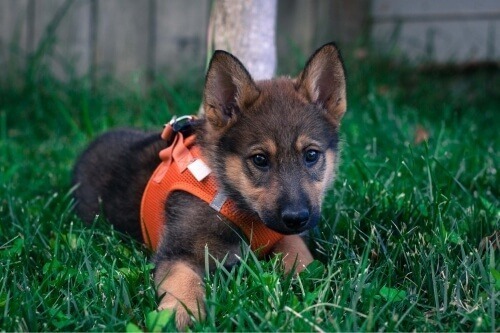
The Dwarf GSD is a small to a medium-sized dog that typically weighs between 25 and 50 pounds. They have short hair and come in a variety of colors, including black, brown, white, and gray. They are an intelligent breed that is easy to train and makes great pets. They are loyal and protective of their owners and can be good watchdogs. They will shed most of their soft puppy coat but will rarely ever develop into their adult coat. Their skin also becomes scaly. Additionally, the adult teeth of dwarf dogs may grow too late.
Which Hormone are essential for German Shepherd dogs?
Thyroid Stimulating Hormone (TSH), which regulates thyroid function · Prolactin (PRL), which is essential for lactation · Follicle Stimulating Hormone (FSH) · Luteinizing Hormone (LH), which is essential for ovulation in female dogs and sperm production in male dogs · Adrenocorticotrophic Hormone (ACTH), which stimulates the adrenal cortex · Endorphins – pain receptors in the brain · Antidiuretic Hormone ADH – kidney tubules · Oxytocin – uterine muscles and mammary glands Any defect in the development of the pituitary gland creates enormous problems for the dog.
Why are Dwarf German Shepherd Dog Breeds becoming more popular?
One of the reasons that the Dwarfism German Shepherd is becoming more popular is because they are a perfect mix of two desirable breeds. They have the stature of a German Shepherd but are smaller in size, making them an ideal pet for people who live in urban areas. They are also easy to train and have a friendly temperament, which makes them great family dogs. If you’re looking for a new pet that is both unique and loving, a Dwarf dogs may be perfect for you!
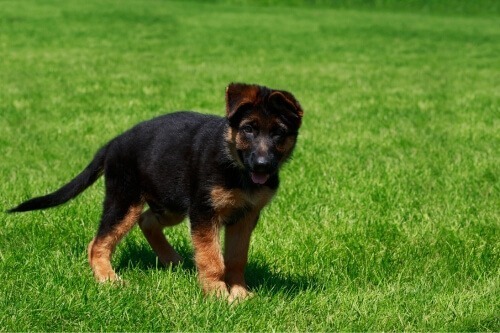
Dwarf German Shepherds are a newer breed of dog that is being bred in increasing numbers. These dogs make great pets because they are loyal and protective but also small enough to be comfortable in an urban environment. They come in a variety of colors and can be easily trained. The Dwarf German Shepherd is small to a medium-sized dog that typically weighs between 25 and 50 pounds. They have short hair and come in a variety of colors, including black, brown, white, and gray. They are an intelligent breed that is easy to train and makes great pets. They are loyal and protective of their owners and can be good watchdogs. They have the stature of a German Shepherd but are smaller in size, making them an ideal pet for people who live in urban areas.
Lifespan
One of the main reasons that German Shepherds have such a long lifespan is that they are relatively healthy dogs. They are not prone to major health problems that can affect other breeds, such as heart disease, cancer, and joint problems. Additionally, German Shepherds are not as prone to developing weight problems as many other breeds, which can lead to a longer lifespan. Dwarf German Shepherds are a newer breed of dog that is being bred in increasing numbers. They are a mix between the standard German Shepherd and the Dwarf Dog, which is a smaller breed. These dogs make great pets because they are loyal and protective but also small enough to be comfortable in an urban environment. They come in a variety of colors and can be easily trained. If you’re looking for a new pet that is both unique and loving, a Dwarf GSD may be perfect for you!
Despite their small size, Dwarf German Shepherds have the same lifespan as their standard-sized counterparts. On average, they live between 10 and 12 years. This is a long time for a pet and means that you will likely have many happy years with your Dwarf German Shepherd. However, like all dogs, Dwarf German Shepherds require regular vet checkups and preventive care to stay healthy. Make sure to take your dog to the vet for annual checkups and routine shots and to keep up with his or her vaccinations.
In addition, be sure to feed your Dwarf GSD a high-quality diet and provide plenty of exercise. This will help keep your dog healthy and happy. As long as you take care of your Dwarf German Shepherd, he or she will be a loyal and loving companion for many years to come.
Health
German Shepherds are a relatively healthy breed, but like all dogs, they are prone to certain health conditions. Some common health problems seen in German Shepherds include hip and elbow dysplasia, bloat, cancer, and epilepsy. Dwarf German Shepherds are particularly prone to some of the same health conditions as regular German Shepherds, including hip and elbow dysplasia, bloat, and cancer. However, they may also be more susceptible to other health problems, such as dwarfism. If you are considering purchasing a Dwarf German Shepherd, it is important to research the various health conditions that this breed is prone to and be prepared to deal with them if they arise. By doing so, you can help ensure that your Dwarf German Shepherd lives a long and healthy life. Dogs that are carriers of the recessive gene do not have any visible symptoms and look exactly the same as the dogs that are not carriers and this is the problem.
Shedding
Dwarf German shepherds are considered to be a hypoallergenic breed. This means that they do not shed as much hair as other breeds of dogs and are less likely to cause an allergic reaction in people who are sensitive to dog dander. However, all dogs will shed some hair, and dwarf gsds are no exception.
If you are considering bringing a dwarf german shepherd into your home, it is important to be aware of the amount of shedding that this breed typically does. While they may not shed as much as other breeds, dwarf gsds will still lose hair, and you will likely find dog hair all over your home. There are a number of things that you can do to help minimize the amount of shedding your dwarf gsd does. For example, you can brush your dog regularly to remove any excess hair. You can also keep your home clean and free of debris, which will help reduce the amount of hair that your dog tracks. Overall, while dwarf gsds do shed, the amount of hair they lose is typically much less than other breeds. If you are prepared for the occasional mess and are willing to take the necessary steps to help minimize the amount of shedding your dog does, then a dwarf gsds may be the perfect pet for you. Shedding is a natural process for all dogs and cannot be completely prevented. However, by taking the necessary precautions, you can help minimize the amount of hair your dwarf german shepherd leaves around your home.
Comparison
As you can see, there are several similarities and differences between dwarf German shepherds and traditional German shepherds. So, which one is right for you?
Well, that depends on your needs and preferences. If you want a small dog that is easy to train and good with kids, a dwarf german shepherd may be a good choice. But if you need a large, protective dog that can handle rigorous exercise, then a traditional german shepherd may be a better option. No matter which breed of shepherd you choose, remember that they require plenty of love, attention, and training. With proper care, these intelligent dogs will make loyal and beloved companions So,
Conclusion
Well, that depends on your needs and preferences. If you want a small dog that is easy to train and good with kids, a dwarf german shepherd may be a good choice. But if you need a large, protective dog that can handle rigorous exercise, then a traditional german shepherd may be a better option. No matter which breed of shepherd you choose, remember that they require plenty of love, attention, and training. With proper care, these dogs will make loyal and beloved companions.

